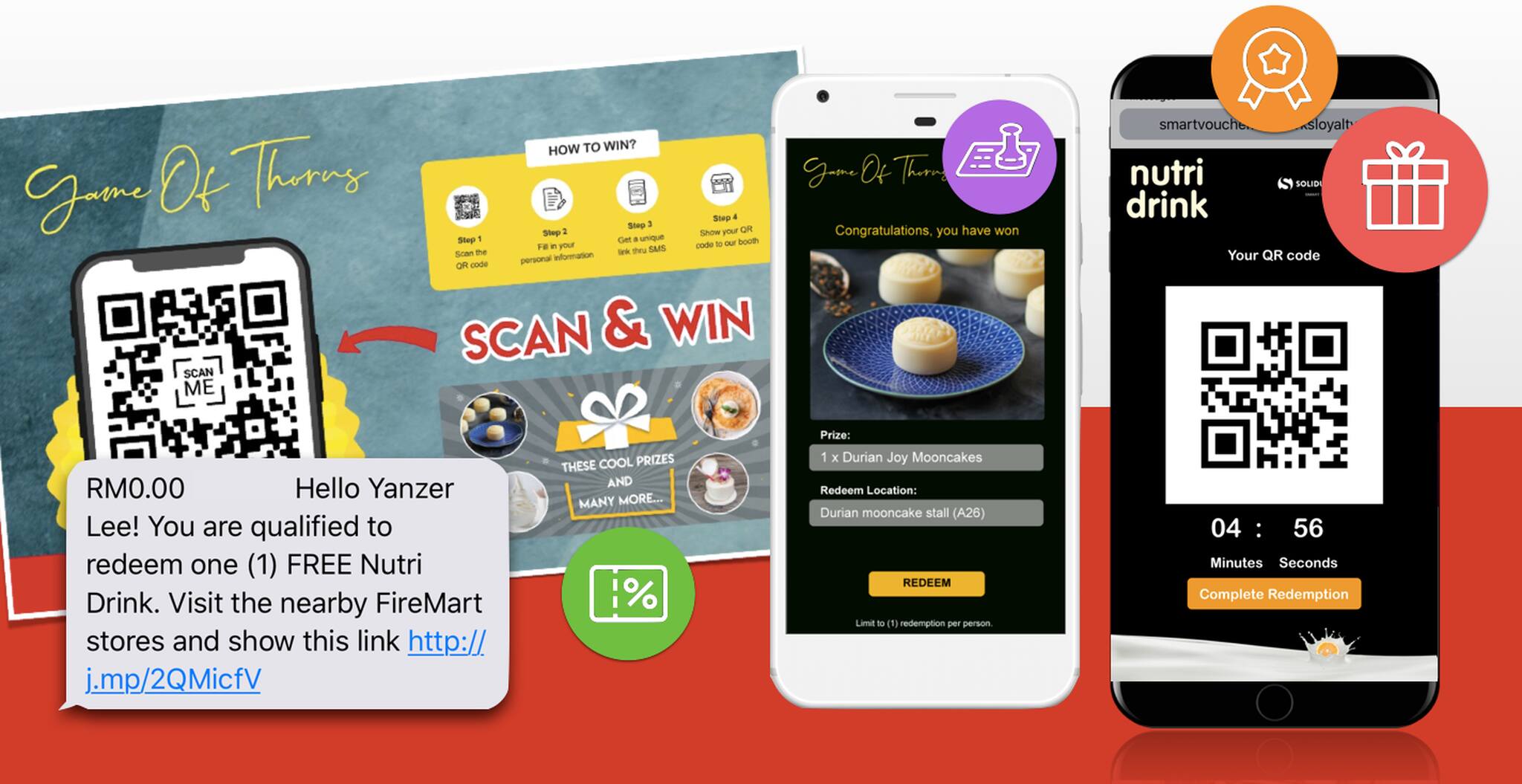Why Every Business Must Have a Loyalty System to Reward Clients
Why Every Business Must Have a Loyalty System to Reward Clients
Blog Article
Loyalty System Insights: Rewarding Consumers and Expanding Your Brand Name
Commitment programs have progressed past simple transactional incentives; they now serve as critical devices for fostering much deeper client connections and improving brand loyalty. The influence of a well-implemented commitment program extends beyond consumer retention, driving campaigning for and shaping brand name assumption in an affordable marketplace.
Recognizing Loyalty Programs

By assessing this information, businesses can tailor their offerings to better fulfill customer needs, developing a more tailored buying experience. This customization is crucial in constructing trust and psychological connections, which are necessary for brand name commitment. In addition, commitment programs can enhance customer involvement with unique deals, benefits, and experiences that reverberate with consumers, strengthening their commitment to the brand name.
Furthermore, commitment programs can add to boosted client lifetime value, as faithful and completely satisfied consumers are most likely to make regular acquisitions and refer others. Ultimately, when applied successfully, loyalty programs not just incentivize prompt sales however likewise grow a neighborhood of brand supporters, thereby driving lasting growth for services in an affordable industry.
Kinds Of Compensate Systems
Different sorts of reward systems exist within commitment programs, each designed to satisfy various consumer choices and organization goals. One prominent strategy is the points-based system, where clients gain factors for every single purchase, which can later be retrieved for discount rates or products. This design motivates repeat transactions and promotes a sense of achievement as customers gather factors.
An additional reliable kind is tiered benefits, which incentivizes customers to reach higher degrees of loyalty. As clients proceed with rates, they unlock progressively useful advantages, thus improving client engagement and retention. This system awards both preliminary spending and continuous commitment, making customers really feel valued.
Cashback benefits are also prevalent, using customers a percentage of their acquisition back as cash money or credit. This uncomplicated strategy charms to price-sensitive consumers and can drive extra constant acquisitions.
Last but not least, experiential incentives give distinct experiences, such as special occasions or very early access to products. These benefits produce memorable communications with the brand name, fostering deeper emotional links.
Each of these systems offers unique advantages, permitting services to customize their loyalty programs to straighten with their client demographics and strategic objectives.

Advantages of Implementing Commitment Programs
Executing commitment programs provides many advantages that can dramatically boost an organization's connection with its consumers. Among the most notable advantages is the boosted customer retention price. By satisfying repeat purchases, businesses promote a feeling of belonging, urging customers to return extra regularly. This not only reduces advertising costs connected with acquiring new consumers yet additionally improves total success.
Additionally, additional hints loyalty programs allow companies to accumulate beneficial information on consumer preferences and buying actions. This details great site can be assessed to tailor advertising and marketing initiatives, bring about even more personalized and efficient projects. The understandings acquired can assist companies recognize fads, enhance product offerings, and boost client fulfillment.
Additionally, commitment programs typically create a competitive side in crowded markets. By developing a solid commitment framework, businesses can distinguish themselves, attracting customers that prioritize brand names that worth their commitment.
Lastly, a well-structured loyalty program can cultivate brand name campaigning for. Dedicated consumers are most likely to recommend a brand to others, effectively turning them into brand name ambassadors. In verdict, implementing commitment programs is a strategic move that can yield considerable benefits, inevitably driving long-lasting service growth and success.
Strategies for Reliable Interaction
Efficient interaction is pivotal for making best use of the benefits of loyalty programs and making sure continual customer rate of interest. Loyalty System. To cultivate purposeful links, businesses ought to embrace a multi-faceted technique that highlights value, interaction, and personalization
First, leveraging customer data to create customized experiences enhances engagement. By assessing acquisition background and preferences, brand names can supply individualized rewards or recommendations that resonate with specific clients. This targeted strategy not just boosts fulfillment yet also encourages repeat communications.
2nd, clear and regular communication is crucial. Utilizing numerous networks, such as email newsletters, social media, and mobile apps, makes certain consumers are informed about promos, benefits, and program updates. Consistent messaging maintains the brand name top-of-mind and reinforces the worth of commitment involvement.
Finally, integrating gamification aspects can substantially boost interaction. Features such as point accumulation, challenges, and tiered incentives create a sense of achievement and exhilaration, inspiring customers to engage even more proactively with the program.
Including these approaches grows a faithful customer base, driving sustained growth and brand name affinity while maximizing the capacity of commitment programs. By concentrating on efficient involvement, businesses can strengthen links and enhance the general client experience.
Gauging Success and ROI
To properly evaluate the effectiveness of loyalty programs, businesses must develop clear metrics for determining success and roi (ROI) Key efficiency signs (KPIs) such as customer advice retention rate, typical order worth, and the regularity of repeat acquisitions give quantifiable insights into program efficiency.
Furthermore, tracking the total effect on client lifetime value (CLV) is critical. A successful loyalty program need to boost CLV by cultivating consumer commitment and motivating repeat transactions (Loyalty System). Services must likewise think about the expense of keeping the program and executing versus the profits created with faithful customers
One more important strategy is to analyze client involvement metrics, such as involvement prices in commitment activities and the redemption of benefits. This data permits companies to refine their offerings and boost customer experiences.
Additionally, using innovative analytics and client feedback can even more sustain the evaluation of commitment program performance. By integrating qualitative understandings with quantitative information, services can change approaches to enhance performance. Inevitably, a detailed measurement structure will allow organizations to comprehend real value of their loyalty programs and make educated choices for future growth.
Conclusion
In verdict, commitment programs act as an essential mechanism for enhancing client interaction and cultivating brand commitment. By using numerous reward structures and customized motivations, companies can properly accommodate varied consumer choices. The tactical application of these programs not just raises customer retention but additionally changes satisfied customers right into supporters, adding to brand development and competitive benefit. Inevitably, the effective implementation of loyalty systems contributes in making the most of customer life time worth and accomplishing long-lasting organizational success.
Loyalty programs have actually evolved past mere transactional benefits; they currently serve as critical tools for fostering deeper client connections and enhancing brand name commitment. As clients advance with rates, they unlock significantly important advantages, thereby boosting consumer involvement and retention. An effective commitment program ought to raise CLV by fostering customer commitment and encouraging repeat purchases.In verdict, commitment programs serve as a crucial system for enhancing client engagement and fostering brand name loyalty. The calculated application of these programs not just boosts consumer retention but additionally changes pleased consumers into advocates, contributing to brand growth and affordable advantage.
Report this page